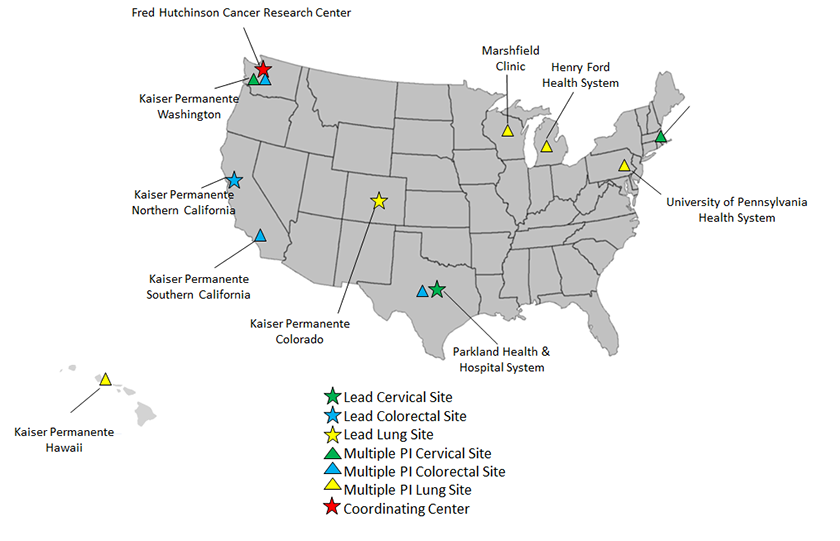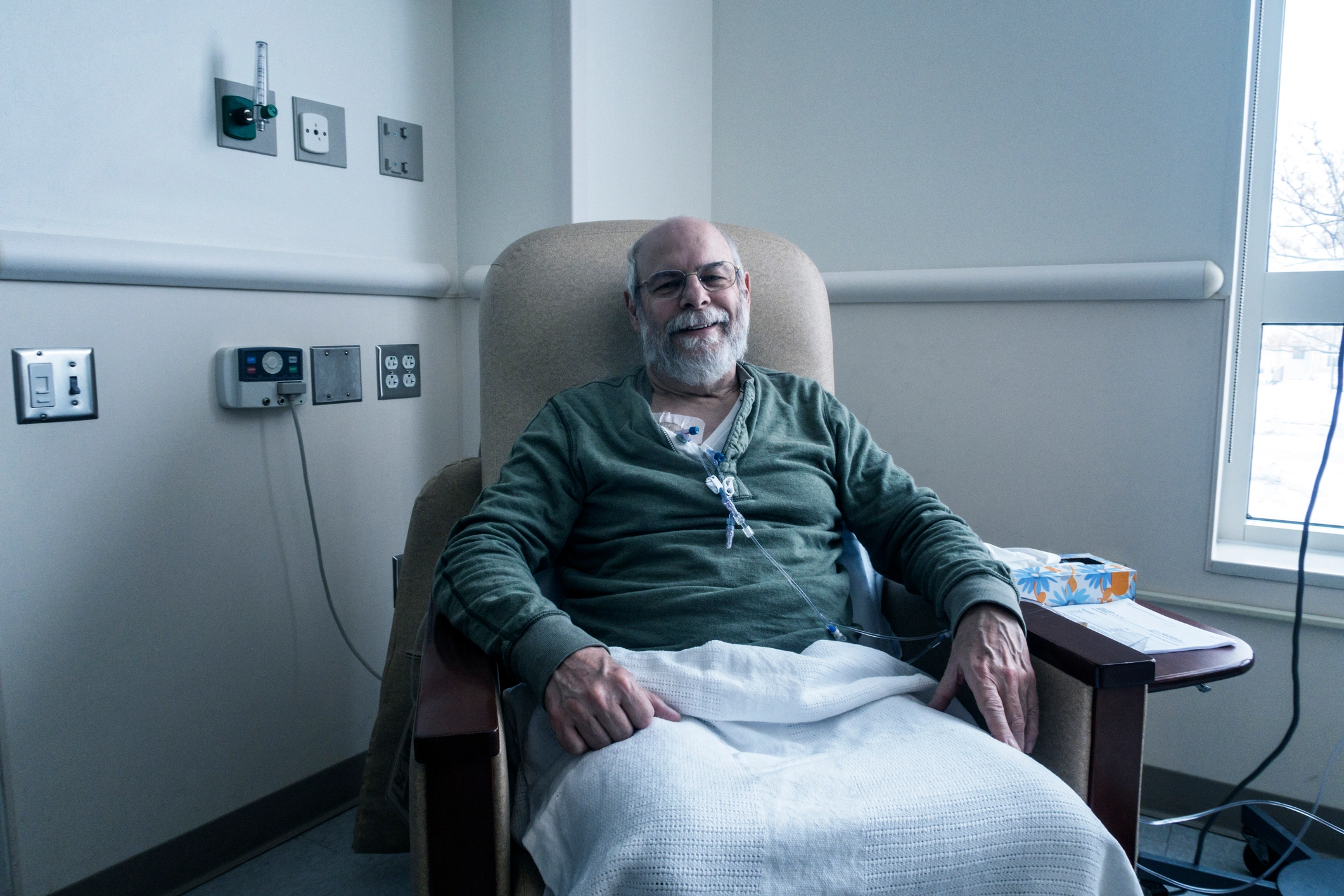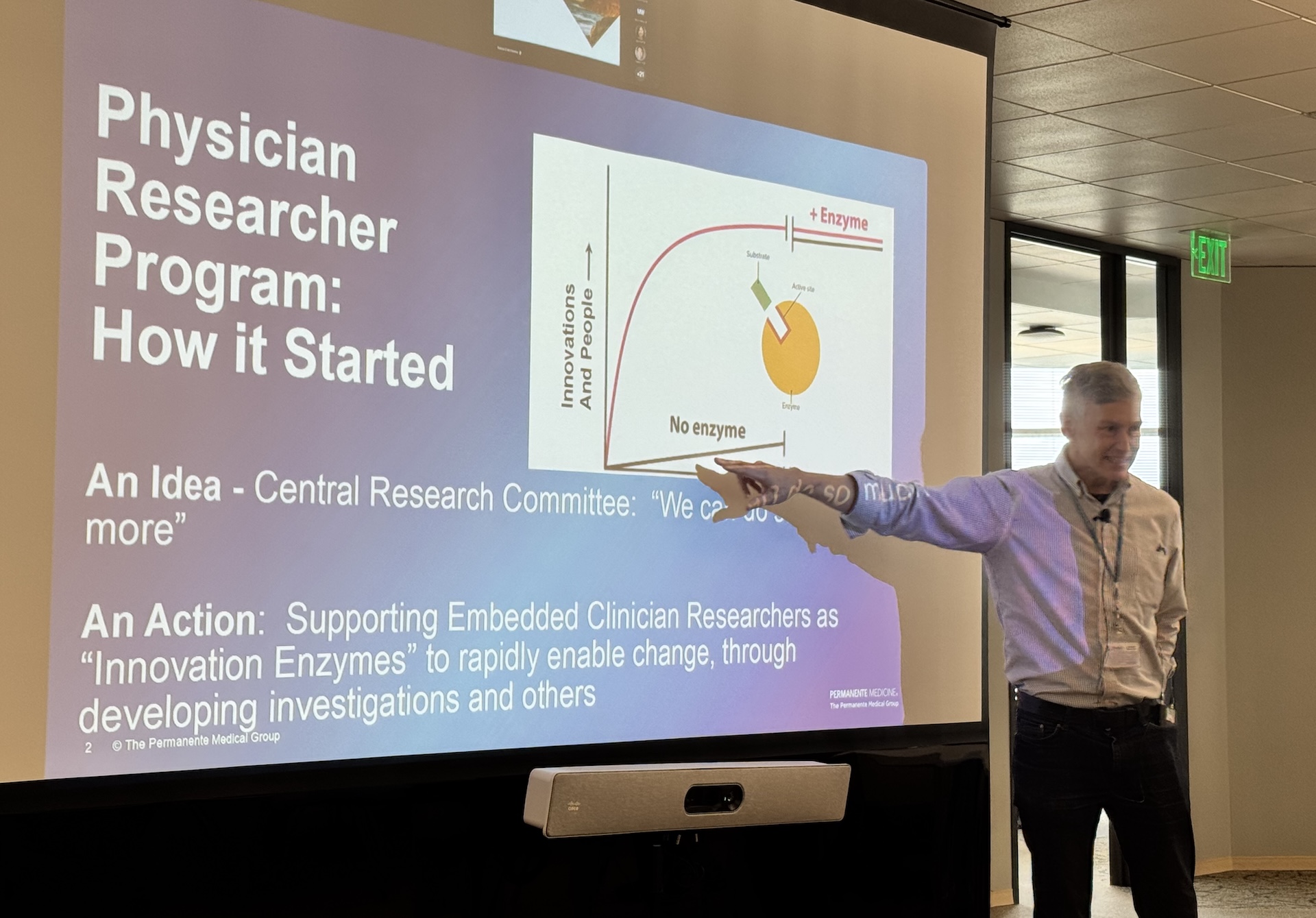Kaiser Permanente Northern California Division of Research to lead collaborative effort
Screening for cancer often gives patients pause. But a new National Cancer Institute (NCI)—funded effort may go a long way toward understanding the barriers to improving screening and improved outcomes in patients.
Researchers at the Kaiser Permanente Northern California Division of Research will co-lead a new effort, part of the NCI’s Population-based Research to Optimize the Screening Process (PROSPR) program.
The NCI developed PROSPR to support research that better understands how to improve the screening process including recruitment, screening, and diagnosis for breast, colorectal, and cervical cancer.
 As part of this second round of research, called PROSPR II, the Division of Research will lead a consortium evaluating colorectal cancer, through a collaboration that includes Kaiser Permanente Northern California, Kaiser Permanente Southern California, Kaiser Permanente Washington, and Parkland Hospital at the University of Texas Southwestern.
As part of this second round of research, called PROSPR II, the Division of Research will lead a consortium evaluating colorectal cancer, through a collaboration that includes Kaiser Permanente Northern California, Kaiser Permanente Southern California, Kaiser Permanente Washington, and Parkland Hospital at the University of Texas Southwestern.
The funding provides for 5 years of research with nearly $16 million divided between the four institutions.
“Colorectal cancer is the second-leading cause of cancer death in the United States today,” says Douglas A. Corley, MD, PhD, a Kaiser Permanente gastroenterologist and research scientist in the Northern California Division of Research, who will lead the new effort. “Screening is highly effective and this grant will allow an in-depth evaluation of how we can use screening the most effectively, consistently in multiple different settings, so all populations can receive the most benefit.”

The new project will leverage the collaboration’s diverse health care settings to achieve four primary goals:
– Identify when to start and stop screening, to maximize benefit and minimize harms, by age and other factors.
– Evaluate how frequently follow-up examinations (also called surveillance) should occur, based on findings from initial screening exams.
– Explore why screening and surveillance are not always completed, and ways of improving follow-up.
– Evaluate how to increase the effectiveness of colonoscopy and fecal immunochemical tests (FIT), the latter of which screens for colorectal cancer by detecting small amounts of blood in the stool.
This work extends the Division of Research’s recently completed PROSPR-I grant, also a 5-year effort led by Corley, as well as numerous prior clinical and research efforts in cancer screening by the division’s investigators.
“We hope what we discover from our research will substantially decrease the burden of colorectal cancer by reducing disparities and identifying ways that will ultimately improve screening completion, follow-up and effectiveness,” Corley said.
For more on funding going to different Kaiser Permanente regions, click here.
# # #
Read previous stories on PROSPR research here:
https://divisionofresearch.kaiserpermanente.org/pressrelease?Id=3545
https://divisionofresearch.kaiserpermanente.org/pressrelease?Id=3521





Comments (0)